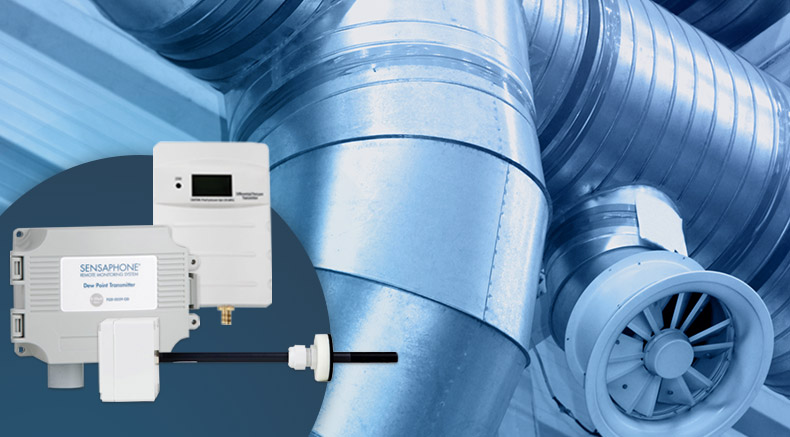Hvac Sensor Types
HVAC systems are an essential part of any modern building, and the role of HVAC sensors is crucial in keeping the system running smoothly and efficiently. If you're a building manager or homeowner who is concerned about maintaining a comfortable and consistent temperature, then understanding HVAC sensor types is essential.
The Pain Points of HVAC Sensor Types
One common pain point related to HVAC sensor types is the complexity of the sensors themselves. With many different types of sensors available, it can be challenging to know which sensors are best suited for your specific HVAC system. Additionally, faulty sensors can lead to HVAC systems running less efficiently and more expensively, making it essential to choose the right sensors for your system.
The Target of HVAC Sensor Types
The goal of HVAC sensor types is to ensure that your HVAC system runs efficiently and effectively while providing a comfortable environment for the building's occupants. These sensors play a crucial role in monitoring temperature, humidity levels, air quality, and other critical factors that impact the building's overall comfort and energy consumption.
Main Points of HVAC Sensor Types
Choosing the right HVAC sensors for your system is critical in maintaining a comfortable and consistent temperature. Popular HVAC sensor types include ambient air temperature sensors, heater core temperature sensors, and humidity sensors. Consideration of the HVAC sensors' quality and placement is essential to get the best performance out of the system. In addition, regular maintenance and calibration can help to ensure accuracy and longevity.
Ambient Air Temperature Sensors
Ambient air temperature sensors are one of the essential components of an HVAC system. These sensors measure the temperature of the air surrounding the HVAC unit, allowing it to adjust the temperature output accordingly. Ambient air temperature sensors work in conjunction with other sensors, such as humidity sensors, to maintain an optimal temperature and humidity level for the occupants.
A personal experience with ambient air temperature sensors involves the calibration process. If these sensors become misaligned or faulty, the HVAC system can have a difficult time adjusting its heating or cooling output effectively. Calibrating a device with sophisticated technology like an ambient air temperature sensor is a technical process that is best left to professionals in the field.
Heater Core Temperature Sensors
Heater core temperature sensors monitor the temperature of the coolant in the heater core. When the heater core temperature begins to rise, these sensors signal the HVAC system to increase the airflow through the heater core to warm the interior of the building. This type of sensor helps to maintain a consistent and comfortable temperature, no matter the external weather conditions.
A personal experience I have with heater core temperature sensors is replacing one that had become faulty. Due to the sensor's location deep within the HVAC system and its complexity, it was difficult to remove and install without damaging other components. This experience highlighted the importance of regular maintenance and attention to sensor quality and placement for the system to function effectively.
Humidity Sensors
Humidity sensors work in conjunction with other sensors to maintain the ideal indoor environment. High humidity can cause surfaces to become damp and can make it uncomfortable for building occupants. Humidity sensors help to regulate the amount of moisture in the air and adjust the HVAC system's output as needed. These sensors can also help prevent mold or other damage caused by high humidity levels.
CO2 Sensors
Carbon dioxide sensors monitor the level of CO2 in the air. This sensor can help regulate the HVAC system to provide fresh air to the building's occupants. In settings where many people are indoors, such as schools or offices, CO2 sensors can play a crucial role in maintaining optimal air quality by regulating the HVAC system.
Question and Answer
What are the Most Common HVAC Sensor Types?
The most common HVAC sensor types include ambient air temperature sensors, heater core temperature sensors, and humidity sensors.
Why are HVAC Sensors Important?
HVAC sensors monitor the temperature, humidity, and air quality in a building to maintain a comfortable and consistent environment. Using accurate and reliable sensors can help reduce energy costs and prevent potential safety hazards, such as malfunctioning heaters or air conditioners.
Can HVAC Sensors be Replaced or Repaired?
Yes, most HVAC sensors can be replaced or repaired, depending on the specific sensor and its location in the system. It's important to use a qualified HVAC professional to ensure proper replacement or repair.
Can HVAC Sensors Improve Indoor Air Quality?
Yes, using sensors to regulate temperature and humidity can improve indoor air quality by ensuring proper air circulation and preventing mold or other damage caused by high humidity levels.
Conclusion of HVAC Sensor Types
HVAC sensor types are essential in maintaining an efficient and effective HVAC system. By understanding the various types of sensors and their role in the system, building managers and homeowners can maintain a comfortable and consistent environment while also reducing energy costs and preventing potential safety hazards. Proper placement, calibration, and quality are essential to get the best performance out of HVAC sensors and the entire system.
Gallery
New Sensors Ensure 24/7 HVAC Remote Monitoring

Photo Credit by: bing.com / hvac monitoring remote sensors sensaphone
Standard® AX86 - HVAC System Ambient Air Temperature Sensor
Photo Credit by: bing.com / sensor air standard hvac ambient temperature system
HVAC Sensors | High Quality Sensors For Your HVAC System - Senmatic

Photo Credit by: bing.com / hvac ventilation
Standard® AX280 - Intermotor™ HVAC Heater Core Temperature Sensor

Photo Credit by: bing.com / sensor hvac temperature standard intermotor heater core
HVAC Sensor.jpg | Audi A2 Owners' Club
Photo Credit by: bing.com / hvac sensor
0 Response to "Hvac Sensor Types"
Post a Comment